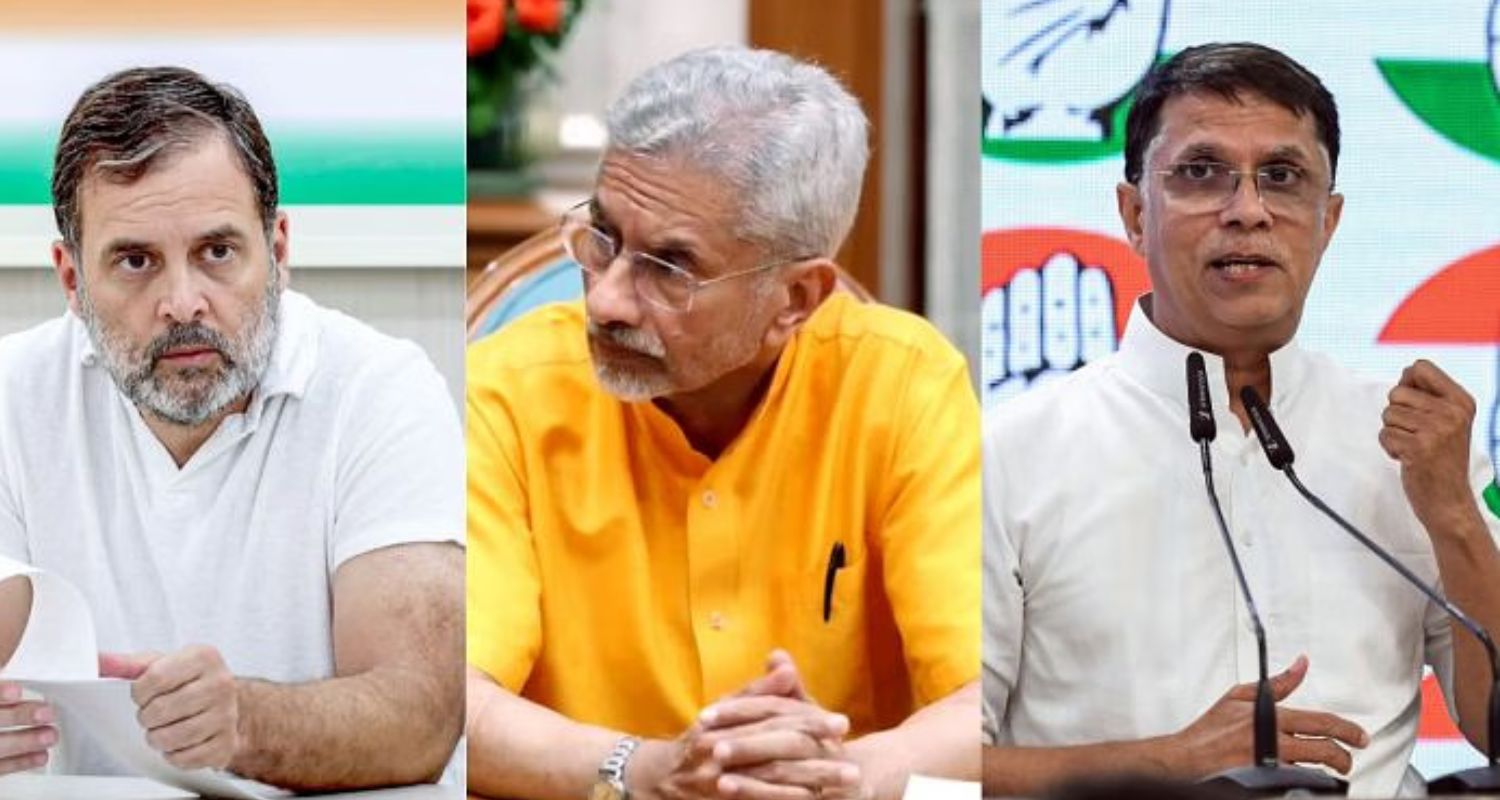Nothing could be far more absurd and out of place than accusing the Indian External Affairs Minister S Jaishankar of being an “informer” of the Pakistan government. Congress spokesperson and the Chairman of the Media and Publicity Department Pawan Khera said it during a press conference. It was not off the cuff remark, but he repeated it with emphasis.
Khera was following his leader, the Leader of Opposition in the Lok Sabha, Rahul Gandhi. Gandhi had picked up a sentence from Jaishankar’s interview to a television channel where he said that the government of India informed Pakistan at the “start” of the operations that the target of the strikes was only the terrorist bases and infrastructure and not any military or civilian installations. It was crystal clear to anyone that the information was obviously shared or conveyed once the operations had already “started” and not before the start.
Since Gandhi’s word is a law in the Congress, like in any party where the leader's word is taken as the gospel truth, “some” of the party leaders latched on to it. This was despite the fact that a large section of the leadership within the party and also the media including that which is known to take a neutral view of things, disagreed with what Gandhi/Congress were saying and speaking about Jaishankar.

Second, the Congress did no good to itself by rejecting the names of its own party leaders who were suggested by the government for inclusion in various multi-party MP delegations to explain India’s point of view to different countries in the aftermath of the Pahalgam terror attack and subsequent hostilities between India and Pakistan.
Consider the names the government of India suggested; Shashi Tharoor, Manish Tewari, Salman Khurshid and Amar Singh. While the first three are quite well known having a sharp grasp and deep understanding of international and diplomatic matters, Singh is a career bureaucrat having worked in different capacities in Madhya Pradesh and then as the Chairman of the Food Corporation of India.
Compare the names with those recommended by the Congress; Anand Sharma, Gaurav Gogoi, Naseer Hussain and Raja Brar. Except for Sharma, none of the other persons have any significant exposure as compared to Tharoor, Tewari of Khurshid. What purpose they would serve, other than being token members of the delegation, only the Congress would know.
Or there was more to it that the Congress does not allow its leaders to “overgrow” and “overtake” the “status quo”. It is something like famous author Ayn Rand says sarcastically in her great novel, Atlas Shrugged, “don’t do your best, it is not required”.
The only leader in the Congress right now who appears to understand the fine art of powerful political messaging is the president Mallikarjun Kharge. But, he has his own limitations, despite not being any competition to the “status quo”.
At least the party and its leaders can pick up certain cues from him, even if they do not follow him. This is a common practice among the Congress leaders that they mention Rahul Gandhi’s name before they mention Kharge’s, making it abundantly clear as whom they consider to be their boss.
During the ‘Operation Sindoor’, Congress did adopt a positive and constructive approach. It did not criticize the government. That is so rare. But the bonhomie lasted only for a few days when the US President Donald Trump announced a sudden ceasefire much to the embarrassment of the ruling BJP in India.
The Congress rightly questioned the government as what authority did Trump have to speak on behalf of India. As long as the party could stick to this issue, which was quite serious and sensitive, it scored a point and the criticism resonated across the country. But then came Gandhi’s and Khera’s remark about Jaishankar, which was misplaced.
The Congress has a firm case against the government’s intelligence and security failure in Pahalgam. How did the terrorists manage to reach the interior depths of the valley? If they came from across the border, how did they go undetected and unnoticed? Why was there no security arrangement at the tourist place where tens of thousands of unsuspecting visitors from across the country were going with the assurance of the government of India that things had been normalized there since the abrogation of the Article 370 of the Indian constitution.
How was it possible that the terrorists rained bullets on helpless tourists for about 40 minutes, as they did not have any fear, probably in the safe knowledge that the security or army personnel cannot reach the spot so soon? And why is it that none of the terrorists has been arrested or eliminated so far even after the passage of one month.
These are the questions the Congress should have focused on and emphasised upon. Party no doubt is raising these issues, but with a cursory glance while it spends its energies on accusations like “Jaishankar acted like an informer”, because it came from “their leader”, Gandhi.
The result is that nobody believes the Congress allegations against Jaishankar. Instead of trying to question or undermine the credibility of its political opponents, the party is putting its own credibility at stake.
The party needs to be on the ground and thoroughly and deeply connected with the masses. Until your message does not echo among the masses and until it does not catch their imagination, it will hardly serve any purposes, like shouting inside your own echo chamber without making any impact anywhere.
Also Read: India set to push FATF for Pakistan’s re-entry into grey list



